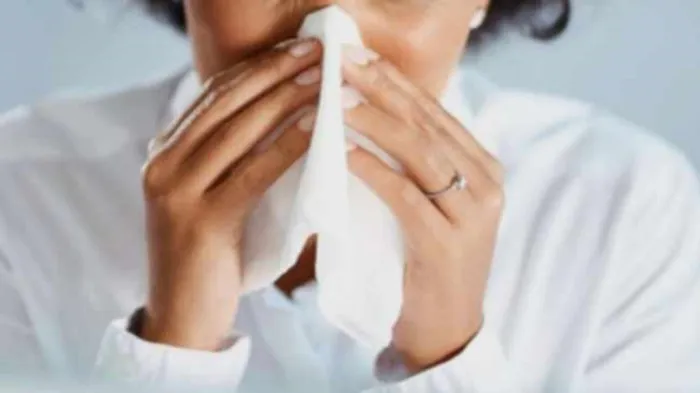Sore throat, headache? Here are 5 symptoms to tell if you have the Omicron Variant

Blowing nose Health experts warn that symptoms which previously helped people to gauge whether they had a cold, flu or Covid-19 are no longer the useful marker they once were.. File picture: Joseph Mucira/Pixabay
PRETORIA- The omicron variant now the dominant strain infecting the unvaccinated and fully inoculated alike, health experts warn that symptoms which previously helped people to gauge whether they had a cold, flu or Covid-19 are no longer the useful marker they once were.
Its a challenge to know whether you have been infected with the omicron variant or just have a plain cold, however, scientists have discovered early symptoms that are likely to show after contracting omicron.
If you have developed:
1 - Soar throat
2 - Headache
3 - Fatigue
4 - Sneezing
5 - Runny nose
It is possible you may be showing signs of the Omicron variant of Covid-19 and need to seek medical attention.
CBS 17, a USA based news channel, cited Professor Tim Spector, lead scientist on the ZOE COVID Study app, saying “As our latest data shows, omicron symptoms are predominantly cold symptoms, runny nose, headache, sore throat and sneezing, so people should stay at home as it might well be COVID.”
Speaking to the Washington Post, Emily Landon, the chief infectious-disease epidemiologist at University of Chicago Medicine, said there are a handful of factors contributing to the blurring of symptoms among viruses, including omicron's characteristics, the way symptoms present in vaccinated people and the rise in cold and flu cases compared with last year's pandemic.
Unlike earlier variants of concern, like delta, omicron has a higher affinity for the upper respiratory epithelium, Landon was quoted saying: "It's more likely to make people sniffle more, sneeze more or be congested."
The World Health Organisation has already warned that Omicron should not be dismissed as mild, adding that even if it does cause less severe disease, the sheer number of cases could once again overwhelm health systems.
The Western Cape Health Department has also warned that while to date vaccinations have been shown to provide good protection against severe Covid-19 disease, the symptoms of the new variant can still cause mild to moderate illness.
Department spokesperson Byron La Hoe said that although the Omicron variant has been reported to have milder symptoms, “unvaccinated people in particular remain subject to more severe illness”.
IOL
Steven Gerrard to miss two Aston Villa games after testing positive for Covid-19
Queen Elizabeth speaks of missing her husband's 'familiar laugh' at Christmas
Thousands of flights cancelled globally as Omicron mars Christmas weekend
Swapping international trips for local? Here’s how to plan a last minute break